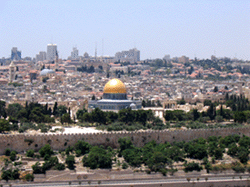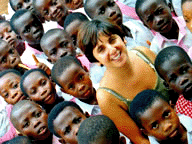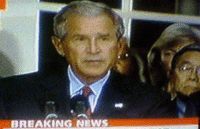
Archives


The Iraq War: Planting the Seeds of Al Qaeda’s Second Generation
The American-led invasion and occupation of Iraq has provided Al Qaeda with a new lease on life, a second generation of recruits and fighters, and a powerful outlet to expand its ideological outreach activities to Muslims worldwide. Statements by Al Qaeda top chiefs, including bin Laden, Zawahiri, Zarqawi, and Seif al-Adl, portray the unfolding confrontation in Iraq as a "golden and unique opportunity" for the global jihad movement to engage and defeat the United States and spread the conflict into neighboring Arab states in Syria, Lebanon and the Palestine-Israeli theater. The global war is not going well for bin Laden, and Iraq enabled him to convince his jihadist followers that Al Qaeda is still alive and kicking despite suffering crippling operational setbacks in Afghanistan, Pakistan, Saudi Arabia, Yemen and elsewhere.
.gif)
AIDS, Orphans and Grannies in Thailand

Development, Human Rights and the Role of Volunteers

Algeria: How Clean Can One Wipe The Slate?
On September 29th, 97% of those voting in the Algerian referendum on Peace and Reconciliation voted yes for peace and reconciliation. Was this a necessary act of popular catharsis after some 13 years of violence? Or was it a government-staged show to reinforce its power? Both are real possibilities. It is important to analyze the results carefully as violence-torn countries need to find techniques to write "The End" to cycles of violence and counter-violence and to begin life again with a clean slate. But does such renewal mean that those who have killed and tortured should be free from possible trials? Much of the killing in Algeria - estimates are of over 200,000 - took place in rural towns and villages where people knew or thought they knew who was doing the killing. Is it possible to live an ordinary life now side by side with murderers?

Shock and Awe in the Homeland: The Whole World is Watching
From the Gulf of Mexico to the Persian Gulf and beyond, a new wave of Shock and Awe is gripping the international community in the wakes of hurricanes Katrina and Rita. There is an increasingly glaring global inquisition taking place - and the spotlight is on American culture. Nationally, the focus of conservative and mainstream news coverage has suddenly shifted. Questions about American racism, classism, xenophobia and unmitigated consumerism and economic growth have hit the ground running. Even the untouchable topics of renewable energy, conservation and global warming, heretofore relegated to the margins of debate by those classes who have built their fortunes on fossil fuels and nuclear energy, are being uttered again as if they were newly discovered galaxies of hope.
